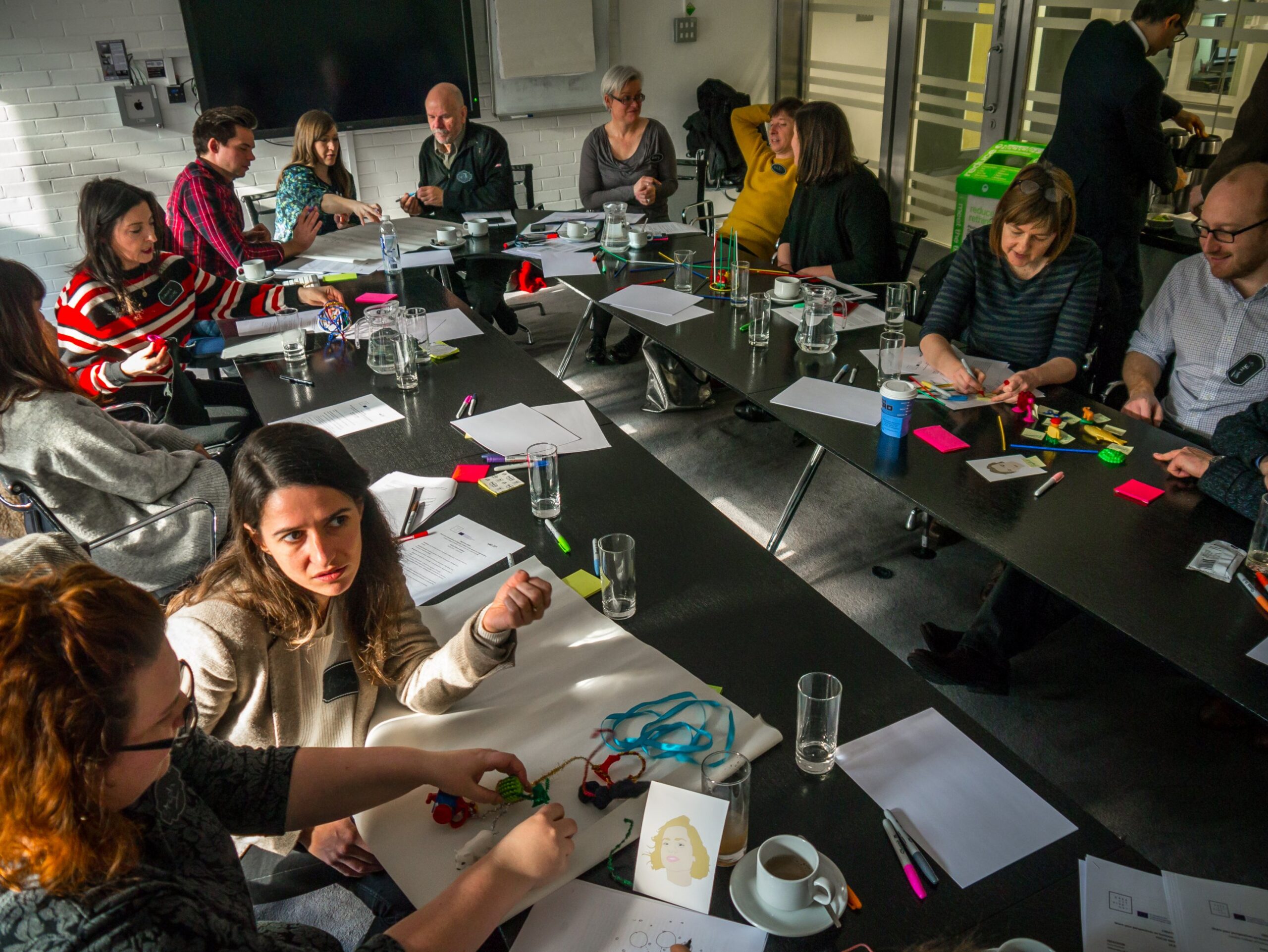
Better business models
Research into business model development in the arts often neglects smaller organisations, but a new project is changing that. Stephanie Dieckvoss introduces the Creative Lenses project.
Many arts organisations worry about how they will be able to cope with funding cuts, changing audiences and the general lack of investment in the arts. While on the one hand the sector has to lobby to uphold the important role it plays in society, there is also a recognition that it has to change and adapt structurally to a more complex environment.
While in the past initiatives have focused on audience engagement or digital developments, we also have to look at the form of the organisation itself and think more holistically about how to support organisations to operate more innovatively and efficiently to ensure their ongoing survival.
The project came into being out of an awareness that it is better to ensure changes are driven by the sector itself and not by policy-makers
One way to look at this is to think about the application of business models. There is a long track record of using business models to look at not-for-profit organisations in general, and management consultancies, such as Deloitte, have worked with cultural organisations (mainly larger ones) to improve efficiencies.
However, research and interventions have often been sector-unspecific and are not that helpful. They also often focus on large organisational structures but don’t support smaller-scale organisations. When introduced from the outside, they are often rejected by the organisations themselves. In many countries the arts reject the notion of being treated as a business structure, while at the same time acknowledging that things have to change.
Changes from within
The aim of Creative Lenses is to build a bridge between business models and the arts sector. The project came into being out of an awareness that it is better to ensure changes are driven by the sector itself and not by policy-makers, and that learning and knowledge sharing has to come from many different places.
Co-Funded by the Creative Europe programme from 2015 to 2019, Creative Lenses works with 13 partners from nine countries to help smaller organisations in particular analyse and optimise their structures, capabilities, resources and audiences without compromising their core values and mission.
Partner organisations in the UK include the University of the Arts London (UAL) and Village Underground in London, as well as Olivearte in Cambridge and Dublin. We are an action research project with a number of tangible outputs from research papers and publications, to workshops, forums, a ‘catalyst’ programme, conferences, a toolkit and a benchmarking tool.
Sharing and learning
After a year of research in which the Basilicata University in Italy has developed a new ‘business model prism’ to analyse arts and cultural organisations, the project now enters its second phase: sharing research and knowledge and peer-to-peer learning through eight forums across Europe.
Each forum will have its own story to tell. While some will focus on participation (Lund) or funding (Helsinki), the forum in London will tap into the leading role the UK plays in bringing business models and arts and culture together. Academics and practitioners will discuss and share their models of business analysis, impact measurements, the practical use of the business model canvas and how to create and share value with audiences. Participants in workshops will apply these initiatives and think abut their own workplace from a new perspective.
The University of the Arts London organises the London forum and Lucy Kimbell, Director of the Innovations Insights Hub, leads our contribution. The support from speakers, stakeholders and researchers has shown that the community at large understands how we all have to work together to ensure arts and culture remain at the heart of a society that faces constant challenges.
Multiple innovations
Our contribution goes beyond the forum as we commissioned a review of non-academic (grey) literature, which will be published online soon, to gain an overview of material on business model innovation in the UK’s performing arts organisations and venues.
Organisations are pursuing greater income diversification and cost reduction through a combination of traditional revenue sources and innovative practices based on collaboration, new commissioning models and new products and services. The wide variety of capital resources, capacities and drivers shaping the future of arts and cultural organisations means that multiple business models are emerging.
During meetings with partners of the project we have found that the terms ‘business innovation’ and ‘business models’ and business and management speak in general make some people wary. It is important not only that we know how to speak the language of business (as we have to deal with it anyway), but that we learn to speak it confidently enough to ensure that business models do not dominate us and we can shape models and tools to serve our purposes and aims.
Post-Brexit funding
In the current uncertainty about the UK’s position in the EU, it is ever more vital that the UK remains an important contributor to business model innovation in the arts. The UK has a lot of practical experience and research, and we should ensure that we are part of the dialogue among all European partners.
Each partner in the Creative Lenses project contributes in a unique way to its development. Cross-cultural collaboration is important and allows us learn from different partners and places. The project has established a network that crosses borders and we will work hard to ensure that these networks continue to be active independent of political changes.
Stephanie Dieckvoss is a Lecturer at Central Saint Martins, University of the Arts London and London Forum Producer for Creative Lenses.
creativelenses.eu
Tw: @stephdieckvoss
The next Creative Lenses Forum in London takes place on 13 October at Chelsea College of Arts.
Join the Discussion
You must be logged in to post a comment.